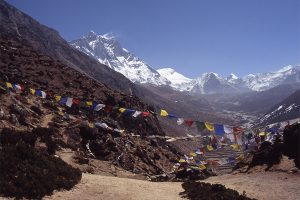Nepal Cracks Down on Internet Porn, Blocks 25K Websites
 Nepalese internet providers recently began blocking thousands of “pornographic” sites as part of a government directive aimed at stopping sexual violence, CTV News reported, as well as addiction. To date, approximately 25,000 sites (and counting) have been impacted.
Nepalese internet providers recently began blocking thousands of “pornographic” sites as part of a government directive aimed at stopping sexual violence, CTV News reported, as well as addiction. To date, approximately 25,000 sites (and counting) have been impacted.
The Nepalese government issued new criminal and civil codes in September that include regulations against the use, broadcast and publication of “pornographic” materials.
The code states: “The Criminal Code 2071 article 121 and other prevalent laws prohibit the production and dissemination of sexually obscene contents. In order to prevent the access of such content through electronic media, the need of pulling down such websites inside Nepal has become necessary.”
Min Prasad Aryal of the Nepal Telecom Authority said that the 25,000 websites are “…only the start, but a very good start,” CTV News reported, adding that a team of officials are monitoring internet service providers to ensure the order is followed. Providers who refuse or fail to comply face a fine of up to $4,200 and risk losing their operating license Punishment for violators is also listed to be up to one year in prison.
Porn: Unraveling Nepal’s Tightly-Woven Social Fabric?
Earlier this month, as reported by TheNextWeb, a spokesperson for Nepal’s National Telecommunication Association (NTA) said that “pornographic” content has become a threat to the sociocultural aspects of the country. The block is being utilized as a measure to control the rising number of rape cases in Nepal, as well as a tool to prevent young people and adolescents from becoming “addicted” to “pornography.”
With an estimated population of over 26 million people, however, these regulations will likely also impact a lot of consenting, interested and non-assaulting adults.
Nepalese media rights groups have expressed concern at the blanket ban of websites, as what constitutes “pornographic” is highly variable.
“This opens up the path for the government to block any websites in the future, saying they have obscene content. This order was issued without clarifying what is obscene and why or without doing any proper study,” said Taranath Dahal, who heads the Freedom Forum, a Nepal-based media rights group, via CTV News.
Dahal also said there should be clear regulations from the government on what content is considered obscene and pornographic and what aged users should be barred.
Reasonable people, like this author, agree with Dahal’s assertion and assessment. Issues with “porn is the sum cause” proclamations aside, if an entire nation state is going to blame internet content for social problems, then they should at least define exactly what content is to blame. In the meantime, the adult industry just lost the whatever percentage of Nepal’s 26 million person populations is over eighteen, which is frustrating.
Image via Birgit Nakielski.












